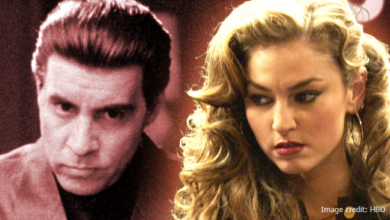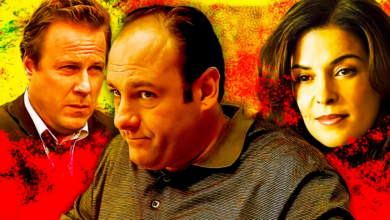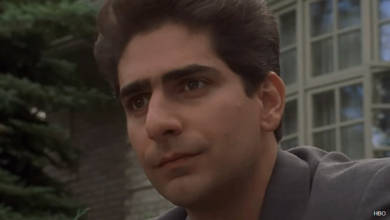The ‘Sopranos’ Episode That Changed the Show Forever
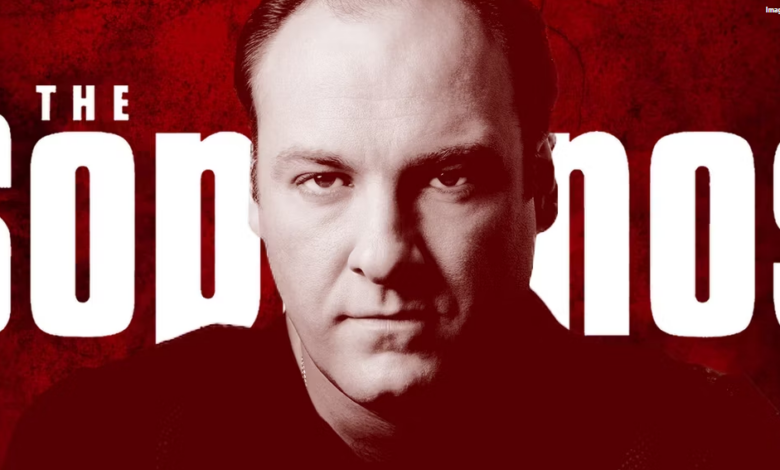
Although the episode explores Tony’s mental health issues in a way that evokes empathy, it does not shy away from his violent nature.
The Sopranos is one of the most influential television dramas in history because it perfected an anti-hero character. Before television audiences got to know, love, and hate characters like Mad Men’s Don Draper (Jon Hamm) or Breaking Bad’s Walter White (Bryan Cranston), James Gandolfini proved that just because a protagonist made terrible decisions didn’t mean they weren’t compelling. Although Tony Soprano commits a number of terrible deeds over the course of The Sopranos, Gandolfini brought such specificity to his performance that it was hard to not root for him a little bit. The Sopranos was a masterpiece of television because its lead character was as ruthless as he was vulnerable. Although the Season 2 finale “Funhouse” explores Tony’s mental health issues in a way that evokes empathy for the character, it does not shy away from the violence that he is capable of committing.
“Funhouse” Shows How Tony Deals With Betrayal

The bleaker second season of The Sopranos focuses on Tony’s rise to the top of the DiMeo crime family. As his children Meadow (Jamie Lynn-Sigler) and A.J. (Robert Iller) begin to realize that their father’s profession is by no means “normal,” Tony begins to become increasingly unstable. Although his therapist Dr. Jennifer Melfi (Lorraine Bracco) helps him make positive steps forward in dealing with his anxiety, Tony can’t help but suspect that there is a traitor within his ranks. It turns out that it’s not just Tony’s anxiety talking, as his longtime ally Pussy Bonpensiero (Vincent Pastore) has secretly been informing on him to the government. Although Pussy’s betrayal is detailed throughout the second season, his fateful encounter with Tony takes place in “Funhouse,” one of the show’s most savage episodes.
Since the season had already shown why Pussy was betraying Tony, it didn’t necessarily come as a major twist in “Funhouse.” However, Pussy’s betrayal is still shocking because the episode details Tony’s reaction. In Tony’s line of work, there is nothing more important than loyalty. Although Tony knows that both his mother Livia (Nancy Marchand) and his uncle Junior (Dominic Chianese) have acted against him and that he cannot trust his family. However, Pussy is someone that he considered a friend. Earlier moments in the season focused on playful and even humorous interactions between Tony, Pussy, Christopher Moltisanti (Michael Imperioli), Silvio Dante (Steven Van Zandt), and Paulie Gualtieri (Tony Sirico) where they felt like a closely-knit unit. When Tony realizes that Pussy has been lying to him the whole time, it forces both him and the audience to look back at these lighter moments from a different perspective.
The standoff between Tony and Pussy is expertly handled and creates one of The Sopranos’ most shocking moments. Although Tony searches through Pussy’s home with Silvio to find proof that he was wearing a wire, he goes into the situation knowing what he will find. The tension revolves around whether Tony will be forgiving; he proves that he’s not willing to stomach a betrayal, even from someone he had considered a friend, when he executes Pussy in cold blood. “Funhouse” establishes that Tony is an inherently violent person who takes any threat to his authority as an act of personal aggression. Tony’s angry tirade against Pussy in the moments before his death exposes his immaturity. He acts like a childish bully who enjoys torturing his victims before their demise. It was important for The Sopranos to establish that despite his occasional charms, Tony is not a good person.
“Funhouse” Uses Tony’s Dreams to Advance the Plot
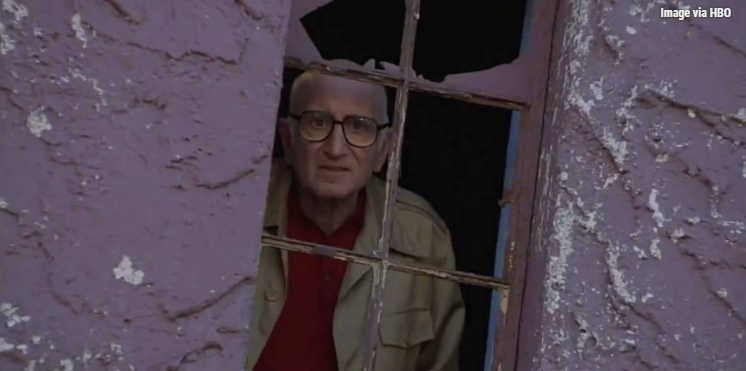
Although “Funhouse” depicts Tony at his most ruthless, it also helps identify his mental health issues. The opening moments of the episode take place in a feverish alternative reality, where Tony dreams that he is on a boardwalk. The moment shows how Tony wrestles with his decision of what to do with Pussy as a fish seems to talk to him. It’s completely absurd, and thankfully, Tony himself admits how ridiculous of a metaphor his dream is. However, seeing this strange dream showed how difficult it was for Tony to discuss his anxieties with the people that he cared about; it’s sad to see Tony in such a depressive state. He is so unwilling to admit that he needs help that he’s forced to use his dreams to cope with his anxieties.
This sequence in “Funhouse” is the first moment where The Sopranos uses Tony’s dreams to advance the plot. Although the show never relied on Tony’s hallucinations as a crutch, it brought back similar dream sequences whenever he had to make important decisions, and fleshed out his personality. Season 5’s “The Test Dream” details Tony’s difficult relationship with his cousin (Steve Buscemi), and Season 6’s “Join the Club” shows an alternate reality that Tony experiences when he is in a coma. “Funhouse” also reveals how the strange logic of Tony’s dreams works, and indicates to viewers what they should expect from these moments. Although nothing in Tony’s dreams can be taken literally, the decisions he makes still have weight in reality.
“Funhouse” Shows the Strength of ‘The Sopranos’ Ensemble

Although “Funhouse” primarily focuses on Tony, it is also a great showcase for some of The Sopranos’ best female characters. Meadow’s angry reaction to her father’s arrest the night before her graduation shows how their father-daughter relationship was splintering; it was a far cry from the empathy that they gave each other in the best Season 1 episode, “College.” Additionally, “Funhouse” gives viewers a last glimpse of Tony’s relationship with his mother before Marchand’s death forced the show’s creators to rely on archive footage for the third season.
Although the tragedy of Pussy’s death is the saddest moment in “Funhouse,” the episode also foreshadows the dark path that lies ahead for some of the other Sopranos characters. Christopher is accepted as a “made man,” even though he can’t handle the responsibility; Silvio’s fierce loyalty to Tony makes his eventual death in Season 6 even more tragic. “Funhouse” established The Sopranos’ ruthlessness, setting the tone that the rest of the series would embody.


